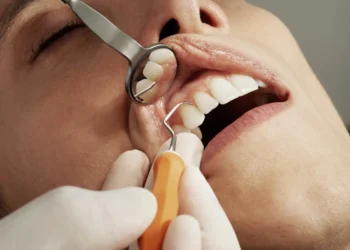Despite increased awareness and advocacy, Down syndrome remains one of the most misunderstood conditions in our society. Myths and misconceptions persist, often fuelled by outdated information, stereotypes, or a lack of direct experience. Let’s shed light on the truth by debunking some of the most common myths about Down syndrome.
Myth 1: People with Down syndrome all look the same
It’s true that individuals with Down syndrome may share certain physical traits, such as almond-shaped eyes or a flatter facial profile. However, they are far from identical. Just like anyone else, people with Down syndrome inherit their features from their family and have unique appearances, personalities, strengths, and preferences.
Myth 2: Down syndrome is a rare condition
In fact, Down syndrome is one of the most common genetic conditions. In Australia, approximately one in every 1,100 babies is born with Down syndrome. It affects people of all ethnicities and socioeconomic backgrounds, and while the likelihood increases with maternal age, most babies with Down syndrome are born to women under 35 due to higher birth rates in that age group.
Myth 3: People with Down syndrome have a short life expectancy
Thanks to advances in healthcare and early intervention, people with Down syndrome are living longer, healthier lives than ever before. Many individuals live well into their 60s and beyond. With proper support, they can lead fulfilling, independent, and active lives.
Myth 4: Individuals with Down syndrome can’t learn
This couldn’t be further from the truth. While learning might take longer or require different methods, people with Down syndrome are more than capable of acquiring academic, social, and life skills. Many attend mainstream schools, complete tertiary education, and thrive in the workplace. What matters most is access to inclusive education and supportive environments.
Myth 5: Adults with Down syndrome can’t work or live independently
Many adults with Down syndrome lead semi-independent or fully independent lives. They hold jobs across various industries, contribute meaningfully to their communities, and even live on their own or with minimal support. Employment and independence look different for everyone, and with the right resources, people with Down syndrome can achieve incredible things.
Myth 6: Down syndrome is always inherited
Most cases of Down syndrome are not inherited but occur as a random event during the formation of reproductive cells. Only a small percentage of cases—specifically those involving translocation—are passed from parent to child. Genetic counselling can provide more insight for families concerned about recurrence.
Myth 7: People with Down syndrome are always happy and loving
While it’s a lovely thought, this is a stereotype that overlooks the full emotional depth and humanity of people with Down syndrome. Like anyone else, they experience a full range of emotions—joy, frustration, sadness, excitement—and deserve to be seen as complex individuals, not defined by overly simplistic character traits.
Changing the Narrative
Breaking down these myths is an important step toward building a more inclusive, informed, and compassionate society. When we take the time to understand the facts, we create space for people with Down syndrome to be seen for who they truly are—capable, valuable, and unique individuals with a lot to offer.









